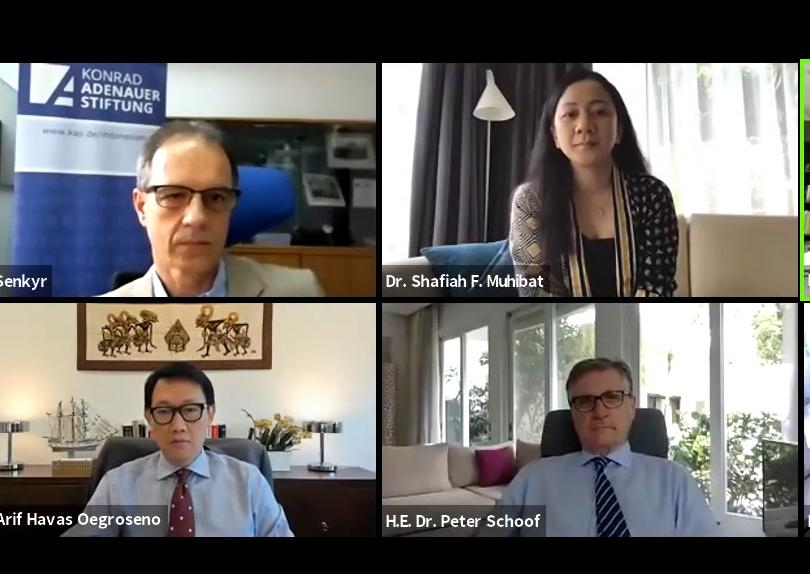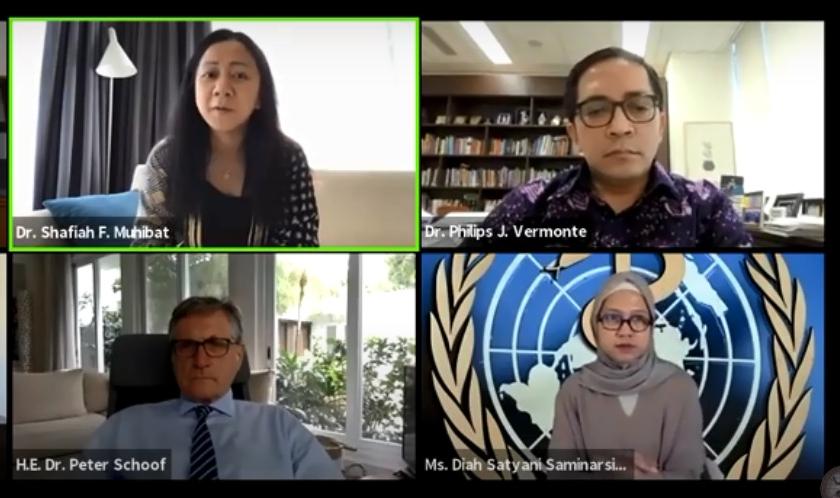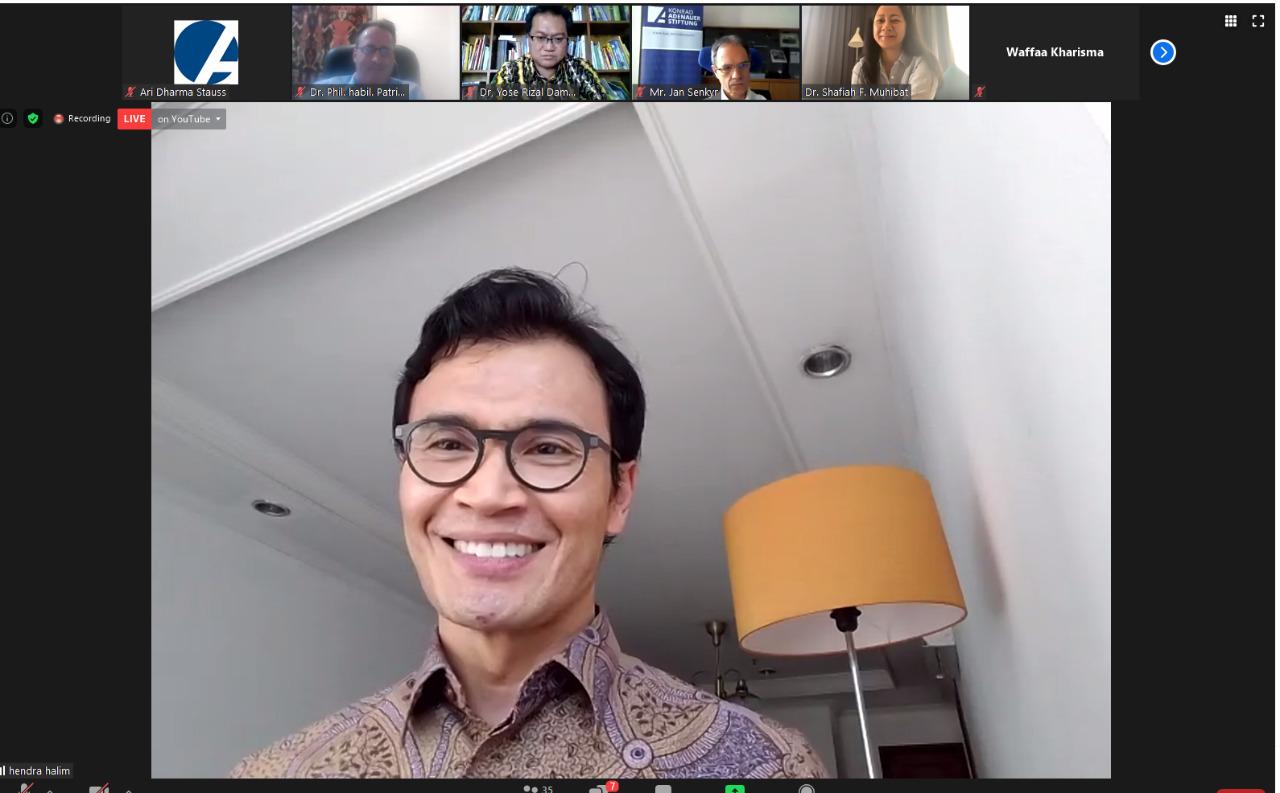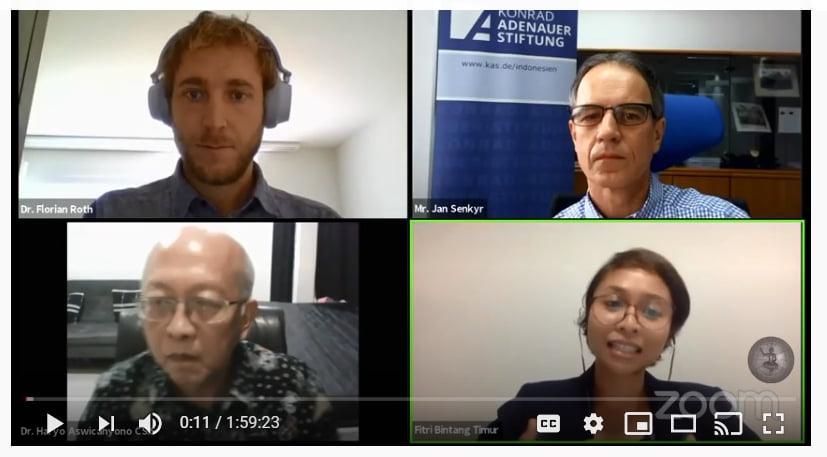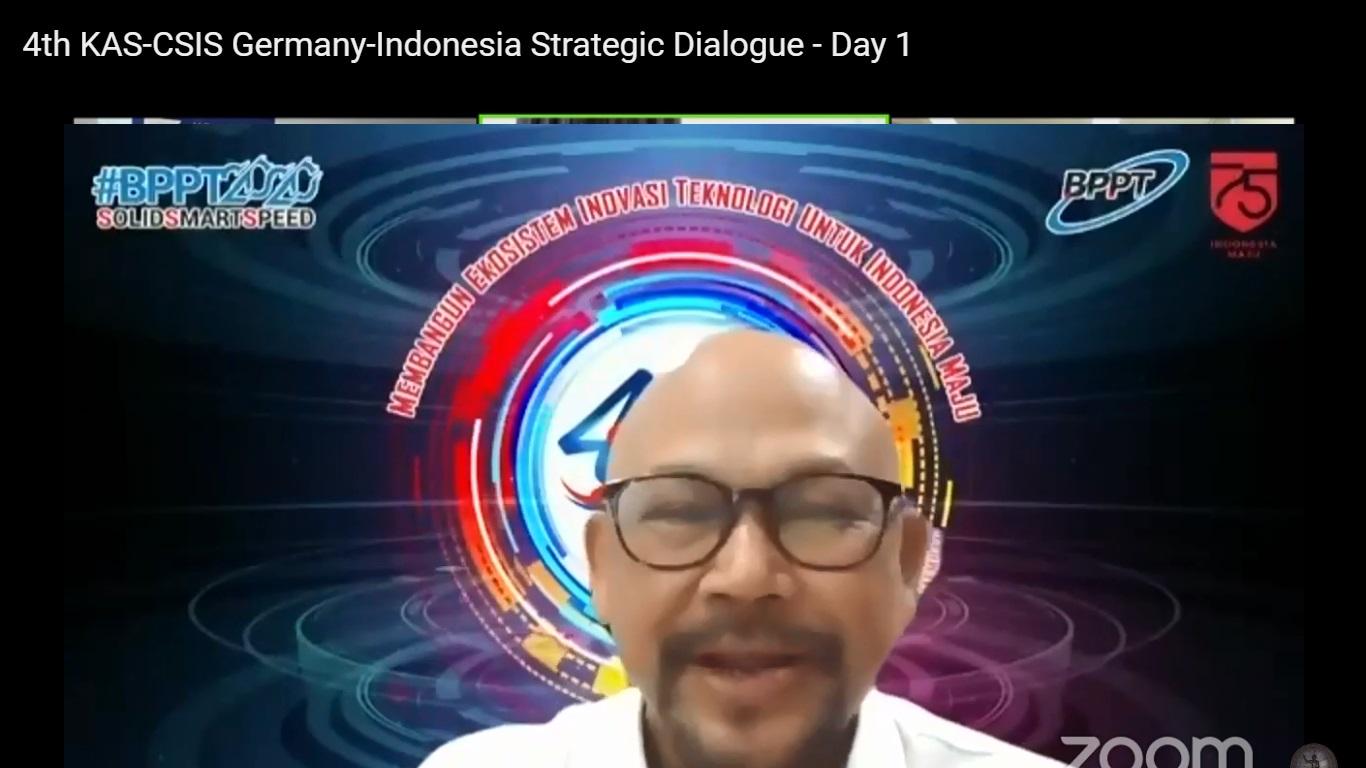The aim is to bring German and Indonesian experts and decision-makers from government, parliament, business and science together and to discuss current global and regional political issues, to exchange information and experience and to discuss possibilities for cooperation.
Given the current situation, this year's strategy dialogue took place in the form of a video conference and dealt with the consequences and challenges of the COVID-19 pandemic. On three days (September 28, 29 and 30, 2020), the effects of the pandemic in the areas of politics, economy, technology and innovation were analyzed and discussed in two-hour discussion rounds.
As guest speakers spoke the Indonesian Ambassador to Germany, H. E. Arif Havas Oegroseno, and the German Ambassador to Indonesia, H. E. Dr. Peter Schoof, on the status of bilateral relations and the possibilities of cooperation in combating the pandemic, such as expanding capacities and technical equipment in the health sector or developing a vaccine.
Prof. Patrick Ziegenhain from the President University in Cikarang presented the current economic data in Germany and the rescue measures decided so far by the federal government. The Director of the European Department of the Indonesian Foreign Ministry, Mr. Hendra Halim, analyzed the situation in Indonesia and the possibilities of cooperation with Germany in the fiscal area.
The third discussion round was devoted to the use of new technologies, especially artificial intelligence, to prevent and manage pandemics and other natural disasters. Here, the head of the Agency for Technological Applications and member of the task force to combat the Covid-19 pandemic, Dr. Hamman Riza presented the Indonesian advances in the development of a vaccine as well as new drugs and technologies for the treatment of Covid-19 diseases. A theoretical introduction on the subject of building socio-technical resilience as well as examples of strategies for reducing disaster risks was presented by Dr. Florian Roth from the Fraunhofer Institute for Systems and Innovation Research ISI.
In the discussion, questions about possibilities for bilateral or international cooperation in combating pandemics were discussed with specific examples. The option of a global early warning system and the acceleration of innovation and technology transfer were also highlighted. A global pandemic like Covid-19 requires global responses and measures.



